Introduction
Les tracteurs sont devenus partie intégrante de diverses industries, révolutionnant notre façon d’aborder l’agriculture, la construction et d’autres secteurs. Ces derniers temps, les discussions se sont intensifiées concernant la meilleure marque de tracteurs. Cet article vise à approfondir ce sujet d’actualité, en explorant les facteurs, les tendances et les raisons qui contribuent à ce débat généralisé.
Evolution of Tracteur Technologie

The evolution of tractor technology has been a fascinating journey that revolutionized various industries. Initially, tractors were simple, basic machines designed to aid in agricultural tasks, mainly pulling heavy loads and plowing fields. These early models were powered by steam engines or crude internal combustion engines.
As time progressed, technological advancements significantly transformed tractors. The early to mid-20th century witnessed a revolution in tractor design and functionality. The introduction of gasoline-powered engines and later diesel engines vastly improved tractor efficiency, power, and reliability.
The mechanization of farming and industrial activities spurred the development of more specialized tractors. Manufacturers started integrating hydraulic systems, allowing for attachments like plows, tillers, and mowers. This versatility made tractors indispensable in various applications beyond farming, including construction, landscaping, and transportation.
Further technological advancements brought about the introduction of four-wheel drive systems, power take-off (PTO) features, and advanced transmission systems. These improvements enhanced traction, efficiency, and the ability to handle more demanding tasks.
Moreover, the digital age ushered in a new era for tractor technology. Modern tractors are equipped with cutting-edge GPS systems, automated steering, precision farming technology, and integrated software that optimizes performance and maximizes productivity. These innovations not only improve operational efficiency but also minimize environmental impact through optimized resource utilization.
Factors Defining the Best Brand of Tracteur
Performance and Efficiency: The engine’s power, torque, and overall performance significantly impact a tractor’s efficiency. The ability to handle heavy loads, operate in varied terrains, and maintain consistent performance influences a brand’s reputation.
Durability and Reliability: The durability of materials used in construction, the reliability of components, and the overall build quality determine how well a tractor withstands rigorous use over time. Brands known for robust, long-lasting machines gain trust among users.
Technology Integration: The incorporation of advanced technology sets certain brands apart. Features like GPS navigation, automated systems, telematics, and precision farming tools enhance productivity and ease of operation, elevating a brand’s standing.
User-Friendly Design: Ergonomics, ease of use, and operator comfort contribute to a brand’s appeal. Tractors with intuitive controls, comfortable cabins, and accessible maintenance features are favored by users.
After-Sales Support: Strong customer service, availability of parts, and responsive maintenance and repair services are vital. Brands that offer comprehensive support post-purchase tend to garner a positive reputation.
Top Contenders in the Tracteur Industrie
-
 Tracteur 4 roues motrices 140 CV 1604
Tracteur 4 roues motrices 140 CV 1604 -
 Tracteur agricole 140HP 1404
Tracteur agricole 140HP 1404 -
 Tracteur Farmall 1304 de 130 CV
Tracteur Farmall 1304 de 130 CV -
 Le tracteur de modernisation QILU 260HP le plus lourd
Le tracteur de modernisation QILU 260HP le plus lourd -
 Puissant tracteur à châssis lourd QILU 240HP
Puissant tracteur à châssis lourd QILU 240HP -
 Tracteur agricole standard international QILU 220HP
Tracteur agricole standard international QILU 220HP -
 Fournisseur de tracteur en Chine 100HP
Fournisseur de tracteur en Chine 100HP -
 Usine de tracteur OEM 80HP
Usine de tracteur OEM 80HP -
 Vente en gros de tracteurs en Chine 70HP
Vente en gros de tracteurs en Chine 70HP
John Deere: Widely recognized for its reliability and innovation, John Deere stands as a pioneer in tractor manufacturing. Their diverse range of tractors encompasses various sizes and applications, catering to both agricultural and commercial needs.
Massey Ferguson: Known for its robustness and versatility, Massey Ferguson offers a comprehensive lineup of tractors suitable for diverse farming operations. Their focus on user-friendly designs and technological integration has garnered widespread acclaim.
Case IH: Renowned for its powerful and efficient machines, Case IH manufactures tractors equipped with cutting-edge technology and advanced features. Their range includes models tailored for both farming and heavy-duty industrial use.
Qilu: With a reputation for durability and performance, Qilu’s tractors are revered for their adaptability across different applications. They specialize in models that excel in agricultural tasks, blending power with efficiency.
Kubota: Recognized for their compact yet powerful tractors, Kubota focuses on delivering reliable machines suitable for smaller farms, landscaping, and residential use. Their emphasis on quality and ease of operation makes them a popular choice.
Customer Preferences and Market Trends
Technology Integration: Customers increasingly favor tractors with advanced technology features. GPS guidance systems, automated controls, and precision farming tools are in high demand, as they enhance efficiency and accuracy in agricultural and industrial operations.
Sustainability and Environmental Concerns: There’s a growing inclination towards eco-friendly tractors that minimize fuel consumption and emissions. Brands investing in hybrid models, electric tractors, or those employing cleaner engine technologies align with the environmentally conscious preferences of modern consumers.
Customization and Versatility: Customers seek tractors that offer versatility and adaptability to diverse tasks. Brands providing customization options, attachments, and models suitable for various applications gain favor among users requiring multifunctional machines.
Ease of Use and Comfort: Operator comfort and ease of use are significant factors influencing customer choices. Tractors with ergonomic designs, user-friendly controls, and comfortable cabins are preferred, particularly for long hours of operation.
Reliability and Durability: The reliability and durability of tractors significantly impact purchasing decisions. Customers prefer brands known for producing robust machines capable of withstanding rigorous use and offering long-term reliability.
Comparative Analysis of Popular Brands
Each brand’s performance, reliability, technological integration, and user-centric features are evaluated against industry standards and specific user requirements. This analysis delves into various aspects:
Performance Metrics: Comparing engine power, torque, hydraulic capabilities, and overall performance across different models and brands to determine their efficiency in various applications.
Les avancées technologiques: Assessing the integration of cutting-edge technology, such as GPS systems, automated features, precision farming tools, and connectivity options, to gauge their impact on operational efficiency and user convenience.
Durability and Reliability: Evaluating the build quality, materials used, and reliability of components to ascertain the durability of tractors under diverse working conditions.
User Experience: Analyzing ergonomic designs, operator comfort, ease of use, and accessibility of controls to understand how well the tractors cater to user needs and preferences.
After-Sales Support: Reviewing the availability of spare parts, maintenance services, warranty offerings, and customer service responsiveness to gauge the brand’s commitment to post-purchase support.
Best Brand for Specific Applications
Identifying the best tractor brand for specific applications involves understanding how different brands excel in various tasks and industries. Here’s a more detailed expansion:
Agricultural Use: Some brands specialize in agricultural tractors tailored for farming needs. Brands like Qilu offer a wide range of models suited for tasks like plowing, planting, harvesting, and towing, with features optimized for farm efficiency and productivity.
Construction and Landscaping: Certain brands, such as Case IH and New Holland, focus on tractors designed for construction, landscaping, and earth-moving tasks. These models often come with specialized attachments and features suitable for heavy-duty work on construction sites or landscaping projects.
Utility and Versatility: Brands like Kubota and Mahindra are renowned for producing compact tractors versatile enough for residential, municipal, or smaller-scale agricultural tasks. These models are popular for their maneuverability, ease of use, and adaptability to various applications.
Specialized Tasks: Some brands excel in producing specialized tractors for niche applications. Fendt and Claas, for instance, offer high-end models with precision farming technology, ideal for specialized agricultural tasks requiring accuracy and advanced functionalities.
Industrial Applications: Brands like Case IH and John Deere also manufacture tractors suitable for heavy industrial tasks beyond agriculture, such as material handling, mining, or logistics, providing robust machines capable of handling demanding work environments.
The Role of Reviews and Recommendations

The role of reviews and recommendations holds significant sway in shaping perceptions and decisions within the tractor industry:
Informed Decision-Making: User reviews, testimonials, and recommendations from experienced operators or industry experts provide invaluable insights into the real-world performance of tractor brands. Prospective buyers often rely on these reviews to gather firsthand information before making purchasing decisions.
Building Trust and Credibility: Positive reviews and recommendations contribute to building trust and credibility for a particular brand. Consistent high ratings and favorable feedback reinforce the brand’s reputation for reliability, performance, and customer satisfaction.
Influence on Purchase Behavior: User-generated reviews have a substantial impact on purchase behavior. Favorable reviews often sway potential buyers towards a specific brand, while negative feedback can deter them, influencing the brand’s market share and sales.
Feedback Loop for Brands: Reviews serve as a feedback mechanism for tractor manufacturers. Brands can use customer feedback to identify areas for improvement, refine product features, and enhance customer service, thus strengthening their offerings based on real user experiences.
Online Platforms and Social Media: Online platforms and social media channels play a pivotal role in disseminating reviews and recommendations. Users share their experiences, creating a dialogue that influences a wider audience’s perception of different tractor brands.
Innovation and Future Prospects
Innovation stands as a driving force shaping the future prospects of the tractor industry, propelling it towards enhanced efficiency, sustainability, and advanced capabilities:
Les avancées technologiques: Ongoing innovation continues to revolutionize tractor technology. The integration of Artificial Intelligence (AI), Internet of Things (IoT), and machine learning is enhancing automation, data analytics, and predictive maintenance in tractors, boosting operational efficiency.
Precision Agriculture: Future prospects revolve around precision farming techniques that optimize resource utilization. Tractors equipped with sensors, GPS technology, and automated systems enable precise planting, fertilizing, and harvesting, maximizing yields while minimizing inputs.
Sustainability Initiatives: The industry is embracing eco-friendly practices, with a focus on developing electric or hybrid tractors, biofuels, and emission-reducing technologies. Innovations aim to minimize environmental impact while maintaining high performance.
Autonomous and Remote-Controlled Tractors: The future holds promise for autonomous tractors equipped with advanced sensors and AI capabilities, capable of operating without human intervention. Remote-controlled functionalities enable operators to manage tractors from afar, enhancing safety and efficiency.
Smart Farming Solutions: Tractors are evolving into integrated components of smart farming systems. They communicate with other farm machinery and software platforms, enabling seamless data exchange for real-time decision-making, optimizing workflows, and increasing productivity.
Conclusion
The buzz surrounding the best brand of tractors stems from a culmination of factors—technological advancements, user preferences, market trends, and brand innovations. As this conversation continues to evolve, understanding these elements becomes pivotal in making informed decisions.
FAQ
1. Are there specific brands dominating the tractor industry?
- The tractor industry boasts several dominant brands, each excelling in various aspects. Exploring the market and user needs helps identify these leaders.
2. How do customer preferences influence the choice of a tractor brand?
- Customer preferences, including performance needs and application specifics, heavily impact brand selection.
3. What role do user reviews play in determining the best brand of tracteur?
- User reviews offer invaluable insights into the real-world performance of tractor brands, influencing consumer decisions.
4. Is there a brand suitable for multiple applications, such as agriculture and construction?
- Some brands offer versatile models designed to cater to multiple applications, making them a popular choice across industries.
5. How significant is technological innovation in defining the best tractor brands?
- Technological innovation is a key determinant, reflecting a brand’s commitment to advancement and user convenience.

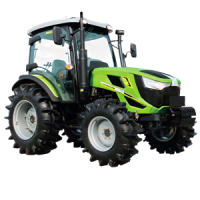
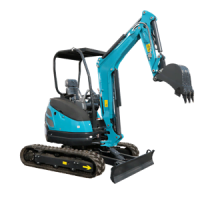
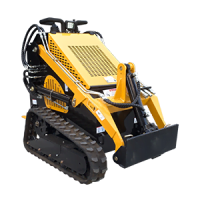
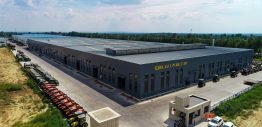

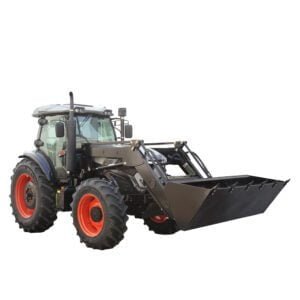
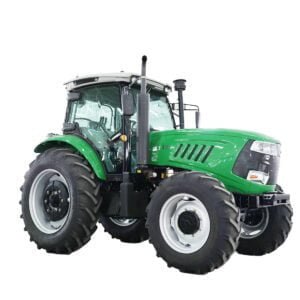






-1.png)